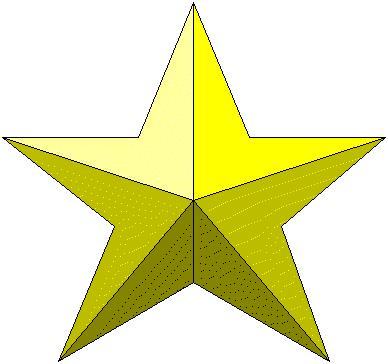|
(2017
midterm assignment) Sample Student Midterm Answers 2017 (Index to # 1 samples) #1: Long Essay: learning, challenges, issues |
 |
John Silverio
Changing Views on Old News
I signed up for LITR 4326 because I thought it would be an easy class.
American Literature? Not difficult at all! The Founding Fathers, pilgrims, and
American Revolution have all been drummed into me by years upon years of good
old standardized testing, and I thought all the underlying ideas simple enough.
A few weeks in, and the class’ difficulty has proved manageable – but now I
stand with much more respect for American writing, especially writing that
characterizes historical figures that I once took for granted. Elementary
education will often give you a binary and vanilla view of the key characters in
America’s “origin story”, as it were. The Founding Fathers were inspiring
Christian freedom fighters. The Puritans were outdated and idealistic. America’s
revolutionary army was rag-tag but managed to be epic in deed and reputation.
While within each of these tales lies a kernel of truth, a close reading of the
texts in this class paints a much more human picture of what one of my peers
called “American mythology”.
Mythology in its purest form is a collection of stories and narratives belonging
to a single cultural tradition, explaining the genesis of certain practices and
beliefs. But I always limited it to the Greek and Romans. When I examine the
players in American mythology through their writing (who happen to be a bit more
rooted in historical fact than their Green and Roman counterparts), I now have a
holistic image of who they were! Though some of these details are less than
flattering, it somehow deepens my appreciation of what these great men and women
achieved. I suppose it is a teaspoon of perspective. One of the simplest
examples of these is Thomas Paine. Though many know him as a patriot and stop
there, a brief investigation into his life before the American Revolution
reveals a resume of failed careers in multiple fields.
Common Sense then, not only becomes a
wildly important piece of patriotic propaganda, but also a man fully fleshing
out his desire to find success. Individuals such as Paine are regarded by many a
historian as legendary, but writing reveals that in many moments. they were just
like us. Let us explore those who often only receive a superficial description
on a well-intentioned history view, and examine American mythology with a fresh
eye.
The importance of the American Revolution and those who fought in it
cannot be overstated. However, it can be humanized. For every congressional
meeting, there had to be a meeting place. For every meeting place, there had to
be places where our beloved Founding Fathers could lay their heads and dream
star-spangled dreams on a soft pillow. An excerpt from John Adam’s diary reveals
how he and his fellow Continental Congress member Benjamin Franklin managed some
cramped sleeping quarters in the name of freedom. As they traveled through New
Jersey, Adams admits “but one bed could be procured for Dr. Franklin and me”.
Though you may never see such a scene in an oil painting, Adam’s recounts the
awkward episode in detail. It is unknown whether Adams intended the journal to
be published and read years later, but it affords modern readers a unique view
into who these men were. At one point the two dispute on whether to keep the
window open, and as Franklin lectures on the effects of cold air on the human
body and Adams “was so much amused that I soon fell asleep, and left him and his
philosophy together.” I’m sure many nowadays would pay an arm and a leg to
listen to Franklin speak, but Adams could not be bothered. History and teachers
often made men such as Adams and Franklin to be pillars of nobility and stature:
and I shall not disagree! I will, however, qualify that even pillars do have a
backside. These letters give add the color of humor and human behavior into how
we picture the Founding Fathers and does in no way diminish my respect for them.
More than ever, I can relate to and appreciate them.
At the risk of overindulging in the small nuggets of humor I found within
the course, I appreciated John Adams’s description of the American Army. The
purpose for which they fought was noble, but the admittedly the army was
composed of men under great pressure. The motif of the hardworking American man
deserving a break gets its own sort of origin story in a letter from John Adams
to Abigail Adams, where he notes the “numbers of officers and soldiers,
straggling and loitering…” around the local public houses (which we could now
call taverns). How often do beer commercials appeal to the 60-hour work week
crowd by giving some convenient spotlight to the buddies at the bar? That scene
is not a new one. To describe Adams as thrilled to see such “dissipation
[drunkenness] at a time so critical” would be a lie, he does end the letter on
an optimistic and arguably patriotic note. Adams refused to be discouraged
because he knows the questionable behavior will be corrected in “in time.” A
time for work and a time for break was well known among the American
revolutionaries, and appreciated (and moderated) by the Founding Fathers.
Women during the American Revolution and even in early American history
are often generalized as meek stay-at-home mothers with little agency or
independence of their own. Though the women’s rights moment loomed far off in
the future, the Puritan system of many early colonists regularly encouraged
organized, mandatory reading and other literary practices. While most of this
was tied strictly to spirituality and the Bible, a female poet by the name of
Anne Bradstreet stepped out onto the canvas of literary history and left her
mark as the “Tenth Muse”. One of my favorite poems is titled
In Reference to her Children, in
which Bradstreet asserts the necessity of motherhood to a functioning society.
The speaker in the poem is a doting mother bird, and the words abound with
emotion as all her baby birds grow, fly, and venture into a world unknown. Men
are mentioned only in passing in the work, creating definite emphasis on the
importance of mothers in parenting that would have been notable in a
masculine-dominant society. Bradstreet does similar work in her poem
The Author To Her Book, which employs
another metaphor exclusive to women (the parallel of a mother’s connection to a
baby with a author’s bond to their writing). In both poems, male patriarchy is
diminished. In this way Anne Bradstreet sets a precedent that is destined to
become a major cornerstone in American culture: the agency and independence of
women displayed in creative and powerful ways. Before this course, I never knew
of any female Puritan writers who could be considered forerunners of feminism.
Thomas Paine wrote his pamphlet,
The Crisis, as an epic call to action for the undecided American who was
unsure about supporting the revolution. The ever-famous words of the
introduction declare “THESE are the times that try men's souls” – and now I know
that Thomas Paine knew of such times long before he penned this political piece.
Paine failed as his father’s apprentice and only came to America by a chance
meeting with a Founding Father, but coming out of that hardship he discovered
writing. Awareness of Paine’s journey gives me greater appreciation of the point
he’s making to American’s in that 1776 treatise: that they can overcome hardship
as well. As I progress in this course, I am excited for history to become more
human through its literature, and will always look for similar moments of
“color” to add to my somewhat grey knowledge of who made this country what it is
today.



